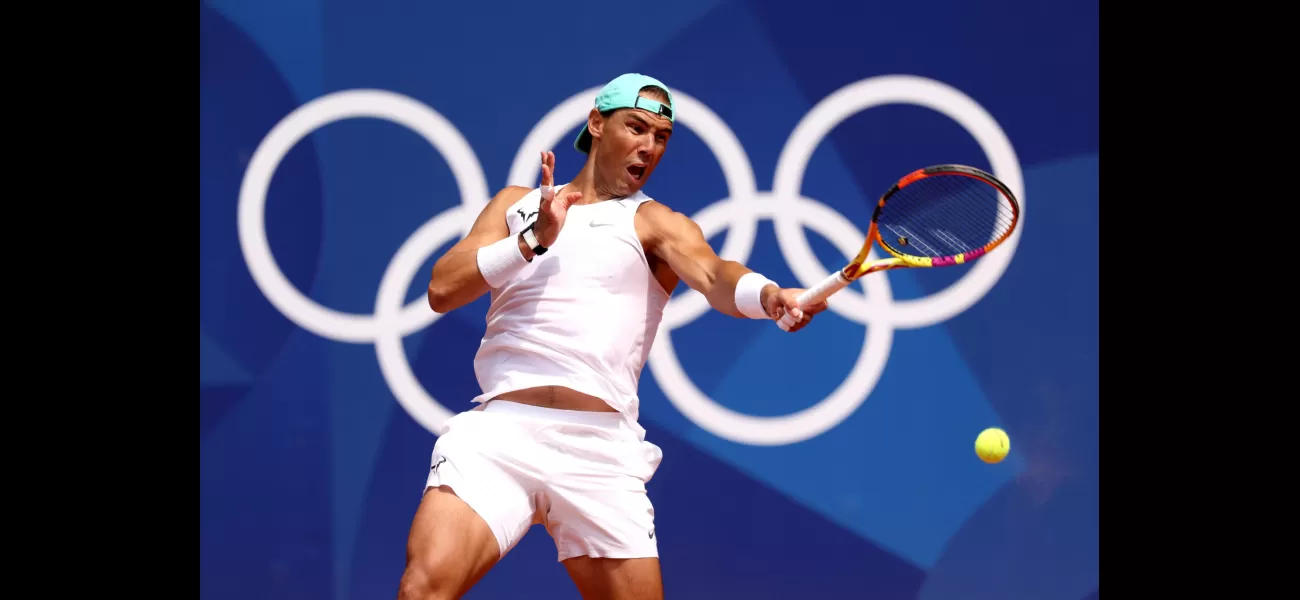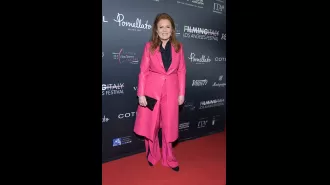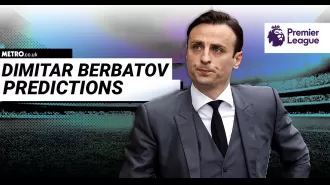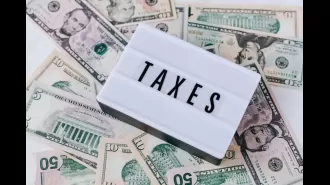The BBC is unable to broadcast live coverage of the full Olympics, but there are alternative ways to watch all events.
The BBC is limited to broadcasting only two sports at once.
July 26th 2024.

For those looking forward to watching Rafael Nadal compete at the Paris Olympics this summer, it may be disappointing to hear that BBC viewers may only catch glimpses of him in action. This is due to the fact that, once again, the BBC will not be providing comprehensive coverage of the event.
In both the London 2012 and Rio 2016 Olympics, the BBC was able to offer wall-to-wall coverage, giving viewers the luxury of choosing which events to watch throughout the competition. However, in 2015, the broadcasting rights for the Olympics were sold to US giant Warner Brothers Discovery for a staggering £920 million. As a result, the BBC lost control of the rights and had to agree to a sub-licensing deal with Discovery.
Unfortunately, this deal only allows for the broadcasting of two live events at the same time. This was evident during the Tokyo Olympics in 2021, when viewers noticed a significant difference in coverage compared to previous years. Instead of being able to access every event, the BBC could only show one event on their main channel while the other channel had a schedule of various sports throughout the day.
On the first morning of the Tokyo Olympics, viewers were limited to watching the cycling road race on BBC One while the red button offered a rotation of archery, gymnastics, and boxing, depending on when British medal hopefuls were competing. This left viewers unable to watch some events in their entirety and caused complaints when full tennis matches featuring Novak Djokovic and Andy Murray were not shown live.
BBC presenter Dan Walker addressed the backlash on Twitter, explaining that the limited coverage was due to TV rights and not an editorial choice. However, this did not stop the criticism directed at the BBC, especially when their official Twitter account announced the results of a judo match before viewers had a chance to see it on television.
The head of major events and general sport at the BBC, Ron Chakraborty, has already warned Team GB athletes that longer events and matches are unlikely to be shown in full at the Paris Olympics this summer. He explained that while the BBC will be there to capture their medal moments, not every minute of their performances will be broadcasted.
Chakraborty also acknowledged that the BBC may face a similar situation to the Tokyo Olympics, where viewers could find out the results of an event on social media before it is shown on television. He emphasized that the BBC will not delay their social media posts in these cases and instead will inform viewers that the event is happening and that it will be shown as soon as possible.
As for the BBC's restricted TV coverage, there will be two dedicated channels for the Olympics on BBC One and BBC Two. Coverage on BBC One will start at 8am and end at 10pm, with BBC Two taking over during the news. Additionally, Olympics Extra on BBC iPlayer will offer a live stream of selected events from 8am until approximately 11pm.
To watch the Olympics in full live in the UK, viewers will have to subscribe to Discovery+. This streaming platform currently has a promotional offer where subscribers can sign up for £3.99 per month until the end of 2024, after which the price will increase to £6.99 per month. However, some TV and internet providers such as BT, EE, Sky, and Vodafone offer Discovery+ as part of their packages. Viewers can check if they have access through their provider's website.
Discovery will broadcast live coverage of the Olympics on their two main sport channels - Eurosport 1 and Eurosport 2 - and will also offer live and on-demand coverage through their streaming platform. So while BBC viewers may miss out on certain events, there are still ways to catch all the action of the Paris Olympics this summer.
In both the London 2012 and Rio 2016 Olympics, the BBC was able to offer wall-to-wall coverage, giving viewers the luxury of choosing which events to watch throughout the competition. However, in 2015, the broadcasting rights for the Olympics were sold to US giant Warner Brothers Discovery for a staggering £920 million. As a result, the BBC lost control of the rights and had to agree to a sub-licensing deal with Discovery.
Unfortunately, this deal only allows for the broadcasting of two live events at the same time. This was evident during the Tokyo Olympics in 2021, when viewers noticed a significant difference in coverage compared to previous years. Instead of being able to access every event, the BBC could only show one event on their main channel while the other channel had a schedule of various sports throughout the day.
On the first morning of the Tokyo Olympics, viewers were limited to watching the cycling road race on BBC One while the red button offered a rotation of archery, gymnastics, and boxing, depending on when British medal hopefuls were competing. This left viewers unable to watch some events in their entirety and caused complaints when full tennis matches featuring Novak Djokovic and Andy Murray were not shown live.
BBC presenter Dan Walker addressed the backlash on Twitter, explaining that the limited coverage was due to TV rights and not an editorial choice. However, this did not stop the criticism directed at the BBC, especially when their official Twitter account announced the results of a judo match before viewers had a chance to see it on television.
The head of major events and general sport at the BBC, Ron Chakraborty, has already warned Team GB athletes that longer events and matches are unlikely to be shown in full at the Paris Olympics this summer. He explained that while the BBC will be there to capture their medal moments, not every minute of their performances will be broadcasted.
Chakraborty also acknowledged that the BBC may face a similar situation to the Tokyo Olympics, where viewers could find out the results of an event on social media before it is shown on television. He emphasized that the BBC will not delay their social media posts in these cases and instead will inform viewers that the event is happening and that it will be shown as soon as possible.
As for the BBC's restricted TV coverage, there will be two dedicated channels for the Olympics on BBC One and BBC Two. Coverage on BBC One will start at 8am and end at 10pm, with BBC Two taking over during the news. Additionally, Olympics Extra on BBC iPlayer will offer a live stream of selected events from 8am until approximately 11pm.
To watch the Olympics in full live in the UK, viewers will have to subscribe to Discovery+. This streaming platform currently has a promotional offer where subscribers can sign up for £3.99 per month until the end of 2024, after which the price will increase to £6.99 per month. However, some TV and internet providers such as BT, EE, Sky, and Vodafone offer Discovery+ as part of their packages. Viewers can check if they have access through their provider's website.
Discovery will broadcast live coverage of the Olympics on their two main sport channels - Eurosport 1 and Eurosport 2 - and will also offer live and on-demand coverage through their streaming platform. So while BBC viewers may miss out on certain events, there are still ways to catch all the action of the Paris Olympics this summer.
[This article has been trending online recently and has been generated with AI. Your feed is customized.]
[Generative AI is experimental.]
0
0
Submit Comment





